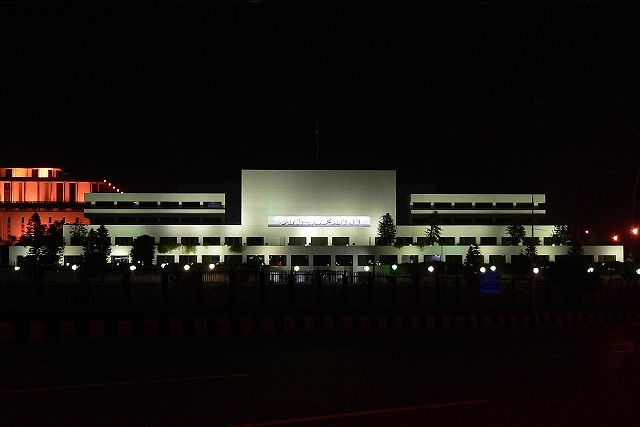The Politics of Pakistan takes place within the framework established by the constitution. The country is a federal parliamentary republic in which provincial governments enjoy a high degree of autonomy and residuary powers. Executive power is vested with the national cabinet which is headed by Prime Minister of Pakistan, who works with the bicameral parliament and the judiciary. Stipulations set by the constitution provide a delicate check and balance of sharing powers between executive, legislative, and judicial branches of the government.
National Assembly of Pakistan
The Constitution of Pakistan, also known as the 1973 Constitution, is the supreme law of Pakistan. The document guides Pakistan's law, political culture, and system. It sets out the state's outline, the fundamental rights of the population, the state's law and orders, and also the structure and establishment of the institutions and the armed forces. Drafted by the government of Zulfikar Ali Bhutto, with additional assistance from the country's opposition parties, it was unanimously approved by the 5th Parliament on 10 April and ratified on 14 August 1973. The first three chapters establish the rules, mandate, and separate powers of the three branches of the government: a bicameral legislature; an executive branch governed by the Prime Minister as chief executive; and an apex federal judiciary headed by Supreme Court. The Constitution designates the President of Pakistan as a ceremonial Head of State who is to represent the unity of the state. The first six articles of the constitution outline the political system as federal parliamentary republic system; as well as Islam as its state religion. The Constitution also encapsulates provisions stipulating the legal system's compliance with Islamic injunctions contained in the Quran and Sunnah.

Quran


